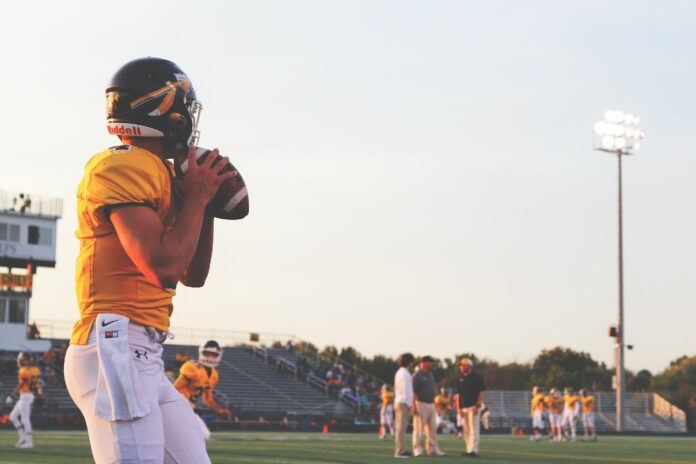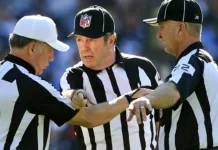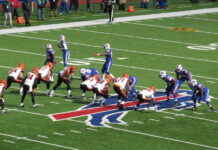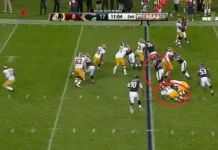We all love the thrill of college football—the roar of the crowd, the clash of helmets, and the suspense of each play. But when you block out your Saturday, you might find yourself asking, “How long is a college football game, really?” While the official game clock ticks for just 60 minutes of regulation play, the real-world experience is a much longer commitment. The average length of a college football game consistently stretches to over three and a half hours, making it a significant time investment for any fan. This discrepancy between the official football game duration and the actual runtime is the first clue that there’s much more to the timing than just four quarters of action.
So, what fills all that extra time? The extended duration of a college football game is primarily dictated by a unique set of rules for game timing and commercial structures. Television broadcasts are a major driver, inserting numerous mandatory timeouts for advertisements throughout the contest. Additionally, the NCAA rulebook contributes with specific stoppages, such as pausing the clock after first downs within the final two minutes of each half. The halftime show duration, a cherished tradition in collegiate sports, also adds a substantial 20-minute intermission for marching band performances, far longer than the professional standard.
Beyond commercials and halftime, other elements further extend the football match length. Strategic team timeouts, official reviews, and injury stoppages all contribute to the stop-and-start rhythm that characterizes a Saturday showdown. And if the game is close, the potential for overtime looms. College football employs a unique, possession-based overtime system with no game clock, meaning a tied game can continue through multiple extra periods, adding what can feel like an entire additional quarter to the experience. This combination of factors ensures that the question of “how long does a college football game last” is always answered with, “Prepare to settle in.”
The Basics: Scheduled Game Time vs. Real-Time Duration
When we talk about the length of a college football game, we need to distinguish between the scheduled playing time and the actual duration from kickoff to the final whistle. On paper, a college football game consists of four 15-minute quarters, totaling 60 minutes of play. But as any seasoned fan knows, the actual time spent at the stadium or glued to your TV is much longer.
Scheduled Playing Time: The 60-Minute Illusion
The 60 -minute scheduled playtime is divided into:
- Four 15-minute quarters
- A halftime break
Seems straightforward, right? But here’s where things get interesting.
The Clock Conundrum: When 60 Minutes Isn’t 60 Minutes
In college football, the game clock is a fickle beast. Unlike some sports where the clock runs continuously, football has a complex system of clock stoppages and restarts. This is where the real expansion of game time occurs.
Reasons for Clock Stoppage:
- Incomplete passes
- Players running out of bounds
- Penalties
- Timeouts (each team gets three per half)
- Official reviews
- Scoring plays
Each of these events can add precious minutes to the game’s duration, turning a theoretical 60-minute contest into a much lengthier affair.
The Halftime Factor: More Than Just a Break
Halftime in college football isn’t just a quick breather—it’s an event in itself. NCAA rules allow for a 20-minute halftime, but in practice, it often stretches beyond this, especially for televised games.
What Happens During Halftime?
- Teams retreat to locker rooms for strategy talks
- Marching bands take the field for elaborate performances
- Sponsors get their moment in the spotlight
- Fans use this time for refreshments and restroom breaks
All these activities contribute to the overall length of the game experience.
Television’s Impact: How Broadcasts Stretch the Game
For televised games, commercial breaks are a significant factor in extending game duration. TV timeouts are built into the game structure, occurring at specific intervals that don’t necessarily align with natural breaks in play.
The TV Timeout Schedule:
- After a score
- During injury timeouts
- At the end of each quarter
- During official reviews
These breaks can last anywhere from 30 seconds to several minutes, adding substantial time to the overall game length.
Overtime: When 60 Minutes Isn’t Enough
Sometimes, 60 minutes of play isn’t sufficient to determine a winner. College football overtime rules are unique and can significantly extend game time.
How College Football Overtime Works:
- Each team gets a possession starting at the opponent’s 25-yard line
- This continues until one team has more points after an equal number of possessions
- Starting with the third overtime, teams alternate two-point conversion attempts
Overtime periods can add anywhere from 10 to 30 minutes (or more) to the game’s duration.
The Human Element: Player and Coach Decisions
The strategies employed by players and coaches can have a substantial impact on game length. Some tactics that can extend playtime include:
- Frequent passing plays (which stop the clock on incompletions)
- Running out of bounds to stop the clock
- Strategic use of timeouts
- Intentionally taking penalties to manipulate the clock
Weather Delays: Mother Nature’s Game-Lengthening Power
We can’t discuss game duration without mentioning the unpredictable factor of weather. Lightning delays, in particular, can add significant time to a game.
NCAA Lightning Policy:
- Play must be suspended when lightning is detected within 8 miles of the stadium
- There must be a 30-minute delay after the last lightning strike before play can resume
These delays can stretch games by hours and sometimes even force them to be completed on a different day.
The Average College Football Game Duration
So, after considering all these factors, how long does a typical college football game actually last? While there’s no one-size-fits-all answer, we can provide some general guidelines.
Typical Game Duration:
- Non-televised games: 3 to 3.5 hours
- Televised games: 3.5 to 4 hours
- Games with overtime or significant delays: 4+ hours
It’s worth noting that these are averages, and individual games can vary significantly based on the factors we’ve discussed.
Comparing College to Other Levels of Football
To put college football game length into perspective, let’s compare it to other levels of the sport.
High School Football:
- Typically shorter than college games
- Often last around 2 to 2.5 hours
- Shorter quarters (12 minutes) and halftime (15 minutes)
NFL Football:
- Generally similar in length to college games
- Average duration of about 3 hours and 12 minutes
- More predictable due to stricter time management rules
The Fan Experience: Making the Most of Game Day
Understanding the potential length of a college football game is crucial for fans planning their game day experience. Here are some tips to enhance your enjoyment:
- Arrive early to soak in the pre-game atmosphere
- Bring comfortable seating if allowed
- Stay hydrated, especially for day games in warm weather
- Plan for meals before or after the game
- Be prepared for potential weather changes
The Future of Game Length: Efforts to Speed Up Play

In recent years, there’s been growing concern about the increasing length of college football games. Both the NCAA and individual conferences have implemented measures to try to shorten games.
Recent Rule Changes:
- Faster play clock reset after first downs
- Running clock after incomplete passes in some situations
- Limitations on replay review durations
These changes aim to strike a balance between maintaining the integrity of the game and keeping it within a reasonable time frame.
Conclusion: Embracing the Marathon of College Football
In the end, the length of a college football game is part of what makes the sport so unique and exciting. It’s not just a game; it’s an event, an experience that can stretch from tailgating in the morning to post-game celebrations late into the night.
While the official clock may only tick for 60 minutes, the memories created during those 3-4 hours in the stadium or gathered around the TV with friends and family can last a lifetime. So next time you settle in for a college football game, remember—you’re not just watching a sport; you’re participating in a time-honored tradition that’s as unpredictable in its duration as it is in its outcomes.
FAQs
Can a college football game end in a tie?
College football games cannot end in a tie. If the score is tied at the end of regulation time, the game goes into overtime until a winner is determined.
How many overtimes can a college football game have?
There is no limit to the amount of overtime in college football. However, starting with the third overtime period, teams alternate two-point conversion attempts instead of full possessions.
Do all college football games have TV timeouts?
No, only televised games have TV timeouts. Non-televised games typically have shorter durations due to fewer stoppages.
Are there any rules to prevent games from lasting too long?
While there’s no hard cap on game length, recent rule changes aim to speed up play. These include faster play clock resets and limitations on replay review durations.
How does the length of a college football game compare to an NFL game?
College and NFL games are similar in length, typically lasting 3-4 hours. However, NFL games tend to be more consistent in duration due to stricter time management rules.





